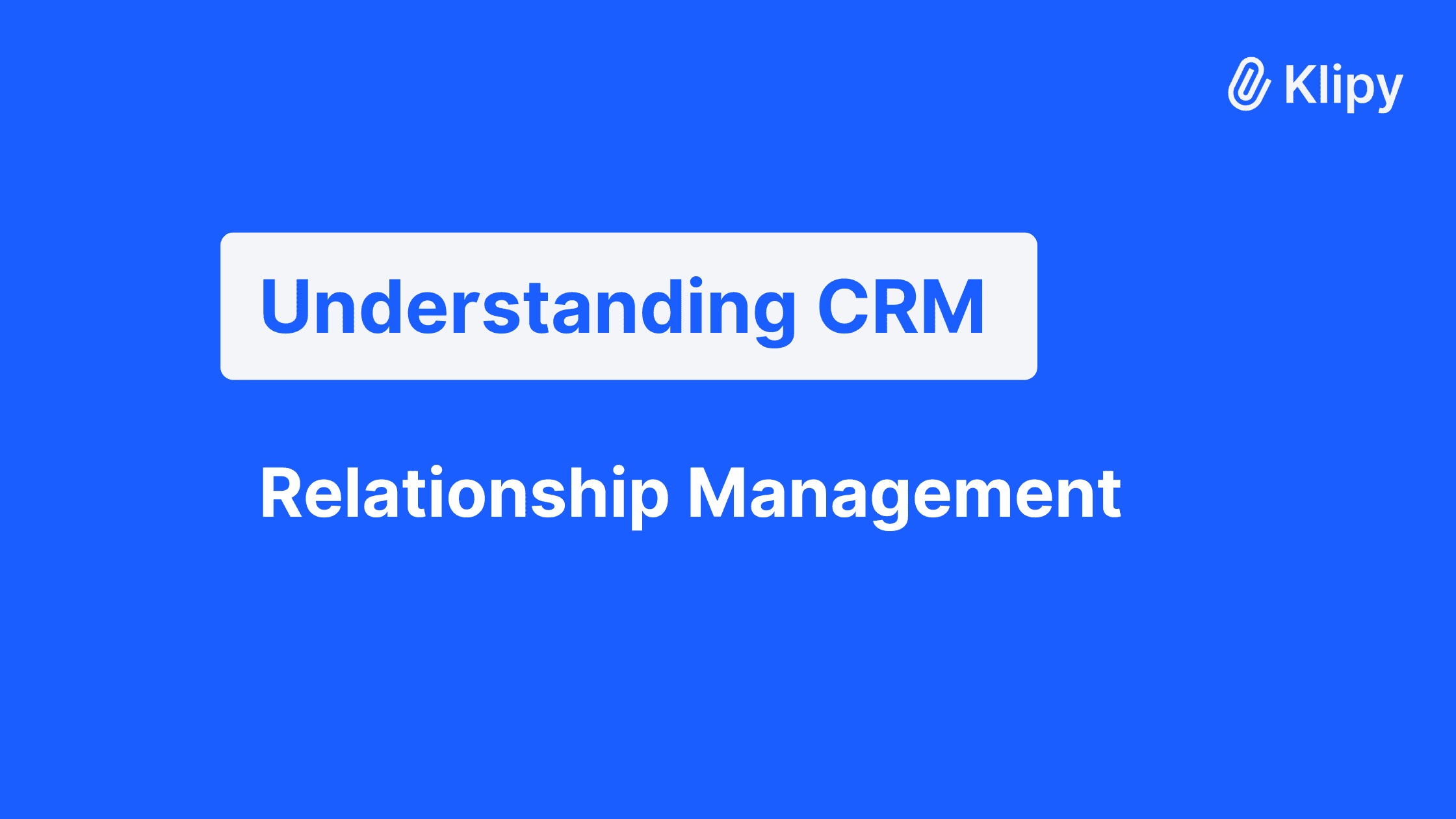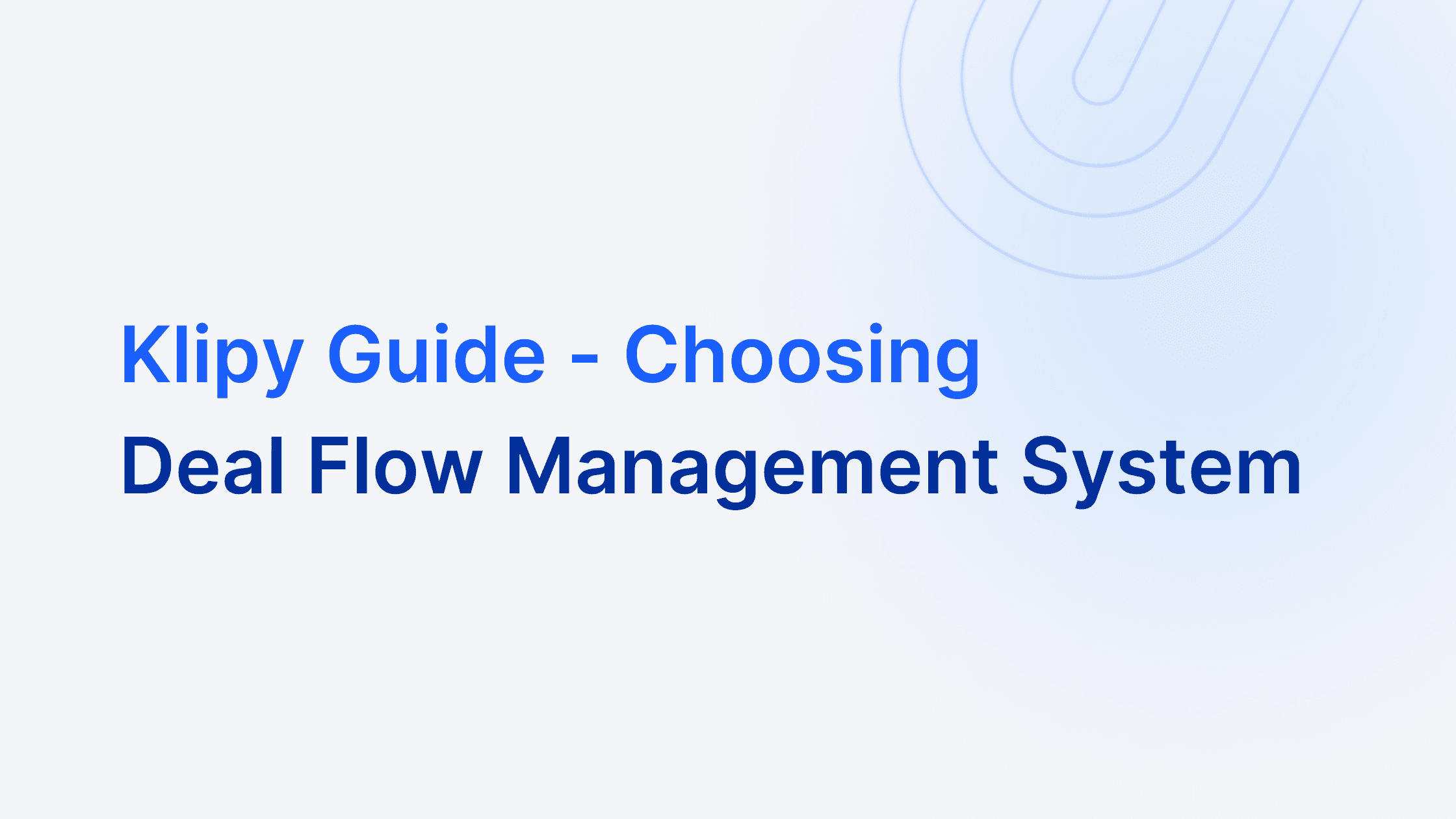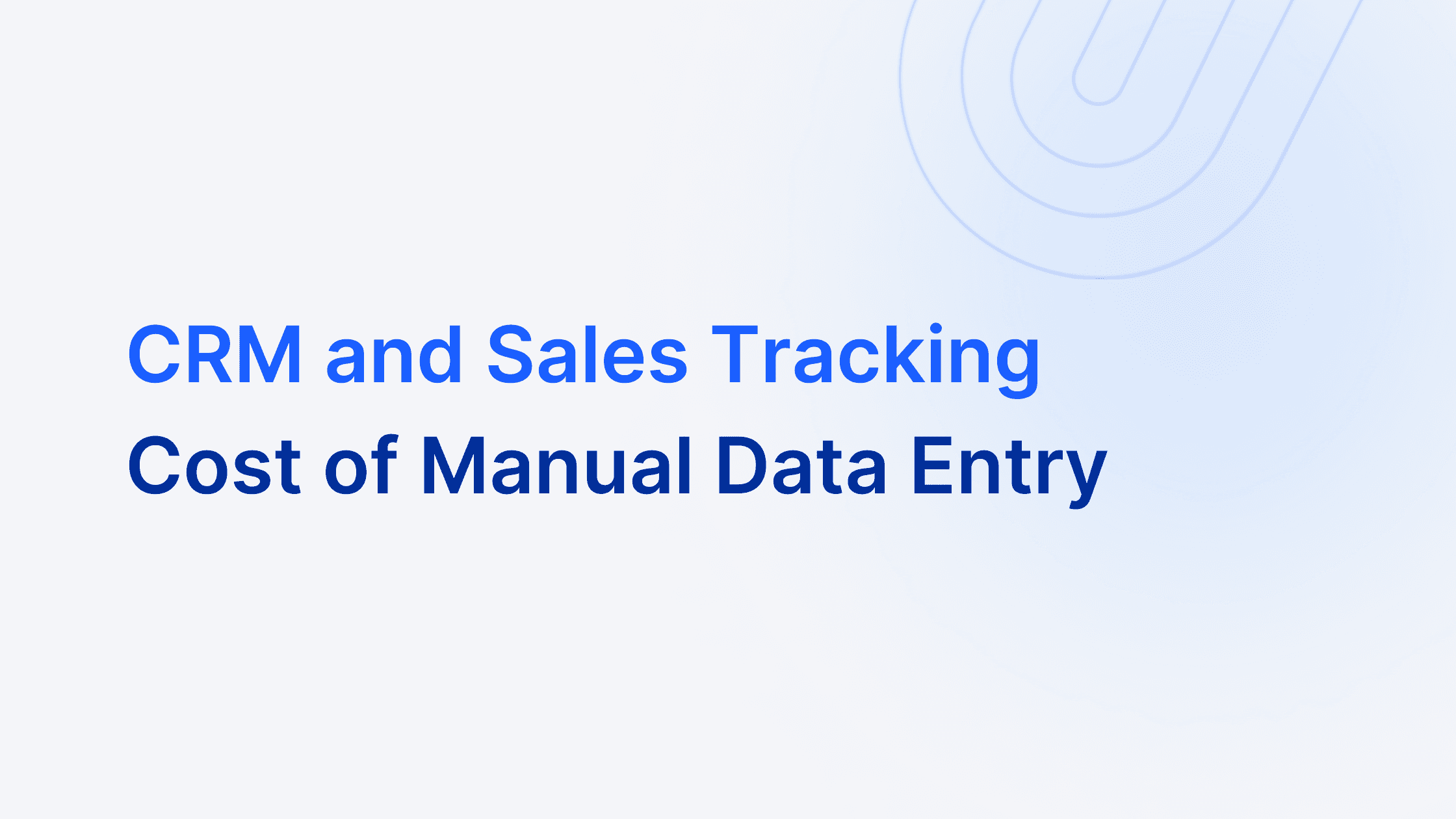CRM
Understanding CRM Relationship Management
Explore how CRM relationship management enhances customer connections, boosts efficiency, and drives business growth for all sizes.
Why CRM Matters
Customer Relationship Management (CRM) helps you build stronger connections with customers and grow your business. A CRM system organizes customer interactions and data, strengthening relationships and increasing profits.
Why CRM matters:
Organizes Customer Data: Keep all customer info in one place.
Improves Communication: Sync your team and boost collaboration.
Boosts Efficiency: Automate tasks to focus on growth.
Enhances Customer Experience: Personalize interactions to show customers you care.
Drives Growth: Understand and meet customer needs for better results.
CRMs work for businesses of all sizes. They turn your data into insights, helping you make smarter decisions.
Core Features of CRM
Benefits of CRM Systems
CRM systems bring a ton of benefits to businesses, making everything run smoother and boosting profits. They automate tasks, track interactions, and unify data, leading to better sales and efficiency.
Streamlines Processes: CRMs automate repetitive tasks like data entry, freeing up time for more important work.
Enhances Customer Service: With a unified view of customer data, businesses can offer personalized and quick responses, improving satisfaction.
Increases Profitability: By organizing customer interactions and insights, CRMs help in spotting trends and opportunities, driving sales growth. For businesses unsure if they need a CRM, understanding key indicators for implementing a CRM system can be beneficial.
Automates Tasks: Routine tasks are handled automatically, allowing teams to focus on strategic activities.
Tracks Customer Interactions: Every email, call, and meeting is logged, ensuring no detail is missed and relationships are strengthened.
CRMs also unify data across platforms, providing a comprehensive view of customer interactions. This ensures consistent communication and service, making it easier to meet customer needs.
With features like AI-driven insights and seamless email integration, platforms like Klipy enhance these benefits, offering a user-friendly way to manage customer relationships. For those considering CRM adoption, reviewing a comprehensive checklist for small businesses can aid in making an informed decision. The positive impact on customer satisfaction and business growth is undeniable, making CRM systems an essential tool for any business.
The Role of AI in CRM
AI integration in CRM systems transforms relationship management. It automates customer interactions, personalizes communication, and enhances predictive analytics.
AI automates routine tasks, letting you focus on building strong customer connections. This frees up time for strategic activities.
AI personalizes interactions by analyzing customer data. Every communication feels unique and relevant, boosting satisfaction and loyalty.
AI predicts customer needs and behavior by sifting through data. This allows businesses to meet customer needs proactively.
Here's how AI enhances CRM:
Automates Interactions: Handles routine tasks, freeing up time for important work.
Personalizes Communication: Tailors messages to individual customer needs.
Improves Predictive Analytics: Anticipates customer behavior, aiding decisions.
Generates Insights: Analyzes data to provide actionable insights.
Streamlines Workflows: Simplifies processes, making operations efficient.
For small businesses, understanding the importance of simple CRM systems can be crucial in organizing data and enhancing communication. With AI, our CRM offers enhanced insights and streamlined workflows. This helps you understand and meet customer demands easily. The result? Better customer experiences and business growth.
CRM for Different Business Sizes
CRM systems are flexible tools that adapt to businesses of all sizes, from small startups to large enterprises. They streamline operations, enhance communication, and support growth across various sectors.
For small businesses, CRMs like ours simplify customer management with features like instant email integration and automation. This helps manage scattered data and improves communication, freeing up time for core business activities. To understand why small businesses often find CRM adoption necessary, explore our insights on the challenges and solutions for small businesses adopting CRM.
E-commerce: CRMs track customer behavior and preferences, enabling personalized marketing.
Healthcare: They manage patient information and streamline appointment scheduling.
Real Estate: CRMs organize client interactions and property details for efficient sales cycles.
Medium-sized businesses benefit from enhanced collaboration and data management. Our platform offers real-time collaboration, allowing teams to share notes and interactions seamlessly.
Large enterprises require scalability and customization. Our CRM provides tailored solutions, including private deployment and custom billing, meeting complex needs efficiently.
CRMs also cater to specific industry requirements. Whether it's sales forecasting in retail or patient management in healthcare, they can be customized to fit unique demands.
The versatility of a CRM lies in its ability to unify data and automate processes, making it an essential tool for any business aiming to grow and thrive.
Overcoming CRM Challenges
Implementing a CRM system can present challenges. Data duplication and integration issues are common hurdles. But don't worry, there are ways to tackle these effectively.
Start by ensuring your data is clean and organized. Duplicate entries can confuse and clutter your system. Regular audits and using tools that automatically identify and merge duplicates can help maintain accuracy.
Integration is another challenge. Many businesses use multiple tools for different tasks. Connecting these systems to your CRM ensures seamless data flow. Look for CRMs that offer easy integration with your existing tools to eliminate manual data entry. For more insights on selecting a CRM with robust integration capabilities, you might find our CRM review and comparison for small business owners helpful.
Here's how to overcome these challenges:
Data Cleaning: Regularly review and update your database to avoid duplicates.
Seamless Integration: Choose a CRM with strong integration capabilities to connect all your tools.
User Training: Ensure your team knows how to use the CRM effectively, reducing errors.
Automated Updates: Use features that automatically update records from interactions.
Connected, organized data is key. It enhances customer experiences and streamlines processes. By addressing these challenges, businesses can fully leverage their CRM's capabilities, leading to more efficient operations and stronger customer relationships.
Integrating CRM with Business Tools
Integrating CRM systems with business tools like document signing and billing applications enhances efficiency and customer service. A CRM that seamlessly connects with other tools provides a 360-degree view of customer data, which is crucial for making informed decisions.
When your CRM integrates with various applications, it ensures smooth data flow and comprehensive insights into customer interactions. This means you can access everything from communication history to billing details in one place.
Benefits of CRM Integration:
Unified Data: Centralizes all customer information, making it easily accessible.
Enhanced Insights: Provides a complete picture of customer interactions and preferences.
Improved Efficiency: Reduces the need for manual data entry and minimizes errors.
Better Customer Service: Enables quick and accurate responses to customer inquiries.
Seamless integration is key to improving business operations. It streamlines processes and supports better collaboration across teams. By having all your tools connected, you can focus on building stronger relationships with your customers.
With platforms like Klipy, the integration process is straightforward, allowing you to save time and boost productivity. Experience the ease of having all your data work together to drive business success. Discover how Klipy's collaborative features enhance team dynamics and streamline sales operations for maximum transparency and efficiency.
The Future of CRM
Technology and AI are reshaping CRM relationship management. These advances make managing customer relationships more personal and efficient.
AI enhances CRM through:
Smarter Automation: Our CRM automates tasks, freeing you to focus on strategy.
Deeper Data Insights: AI uncovers valuable insights into customer needs.
Tailored Communication: We help you connect with customers in more meaningful ways, building stronger relationships.
CRM systems are evolving. They now predict behavior and adapt strategies. This helps you forecast accurately and make smart decisions. For those interested in free CRM solutions, our overview of the best free CRM software options for small businesses in 2024 can provide valuable insights into cost-effective tools that enhance customer relationship management.
We're integrating CRM with your other business tools. This unified platform streamlines your operations.
As CRM grows, you'll deliver better customer experiences. Improved automation and data analytics drive your success. You'll build stronger connections and grow your business.
Key Takeaways on CRM Management
CRM systems are essential for managing customer relationships and driving business growth. They offer tools that organize interactions, automate tasks, and provide valuable insights.
CRMs enhance communication by keeping all customer data in one place. This centralization helps businesses respond more effectively to customer needs.
Benefits Recap:
Efficiency: Automates routine tasks, saving time.
Personalization: Tailors interactions to individual customers.
Growth: Identifies opportunities through data analysis.
Integration: Connects with other tools for a seamless workflow.
Looking ahead, CRM systems continue to evolve with AI and automation, making them even more powerful. They adapt to different business sizes and needs, ensuring every interaction is meaningful.
For small businesses, adopting a CRM like Klipy simplifies operations with features like instant email integration and AI-driven insights. This not only supports growth but also enhances customer satisfaction.
Understanding CRM's role in your business helps streamline processes and build stronger connections. It's about using technology to create lasting relationships and achieve business goals.
More from the blog








